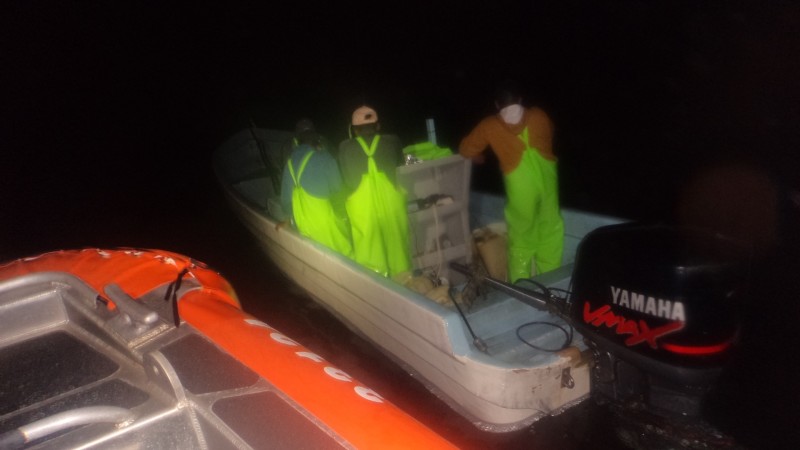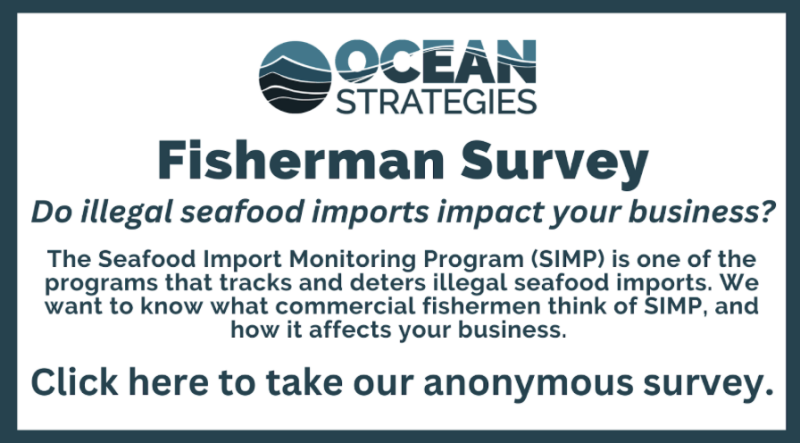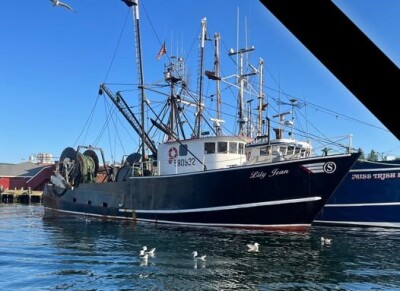A new online survey by fishing industry advocates is asking U.S. fishermen for their opinions on the federal Seafood Import Monitoring Program – and how it is affecting their businesses.
The National Marine Fisheries Service is proposing changes to the Seafood Import Monitoring Program (SIMP), to mixed reviews from the U.S. industry. There is support for expanding NMFS monitoring of more species, but skepticism too about how the agency will license foreign importers, and demands that NMFS do more to crack down on foreign fish harvested by forced labor.
Ocean Strategies, a consulting firm that specializes in American fisheries management, aquaculture policy and seafood consumption, is asking fishermen what they think by participating in an anonymous online survey.
“Currently, SIMP monitors 13 seafood groups that are imported into the United States. SIMP is designed to prevent illegal and unregulated seafood from entering the U.S. market,” according to the Ocean Strategies survey. “Now that the program has a few years under its belt, NOAA is considering expanding the species that are monitored under this program. They are seeking feedback from commercial fishermen on the current and proposed programs.”
Responses to the survey “will be aggregated and anonymous as part of a general report of commercial fishing perspectives,” the group said. Fishermen can leave their email address at the end of the survey to get updates on the results.
The planned SIMP reforms are already generating lots of formal comments from industry advocates like the Southern Shrimp Alliance. The group recently expressed support for expanding SIMP to cover all species of snapper, declaring “the continued illegal harvest of snapper in the Gulf of Mexico presents a direct threat to the operations of the U.S. commercial fishery for warmwater shrimp.”
Coast Guard patrols off the southern Texas coast routinely interdict lanchas outboard skiffs, crewed by Mexican nationals, fishing illegally in U.S. waters for snaopper and other species.
“Nevertheless, despite these unceasing violations, the value of the U.S. imports of snapper from Mexico has increased since NOAA Fisheries implemented SIMP,” according to the Southern Shrimp Alliance.
“For far too long, seafood importers have had free reign to do whatever they wanted. Even now, with SIMP, one importer just told the agency that ‘there is no system that you can come up with to keep people honest on snapper,’” said shrimp alliance executive director John Williams. “Pervasive non-compliance with our laws should not result in NOAA Fisheries backing down. This country’s commercial fishing industry knows all too well that NOAA Fisheries enforces laws when it wants to. It is well past time to hold importers to the same standard."








